Adapt. Prepare. Absorb. Recover. These four principles guide the U.S. Army Corps of Engineers’ (USACE) approach to coastal resilience, a central theme of the keynote at the Optimizing Solutions for Resilient Coasts summit on December 13 at the Austin Cary Forest Campus. Keynote speaker Julie Rosati, Ph.D., lead technical director for civil works and coastal risk management R&D at the U.S. Army Engineer Research and Development Center (ERDC), led a lively discussion with over 100 students, scientists, and industry and government leaders on growing challenges to coastal resilience and how to address them.
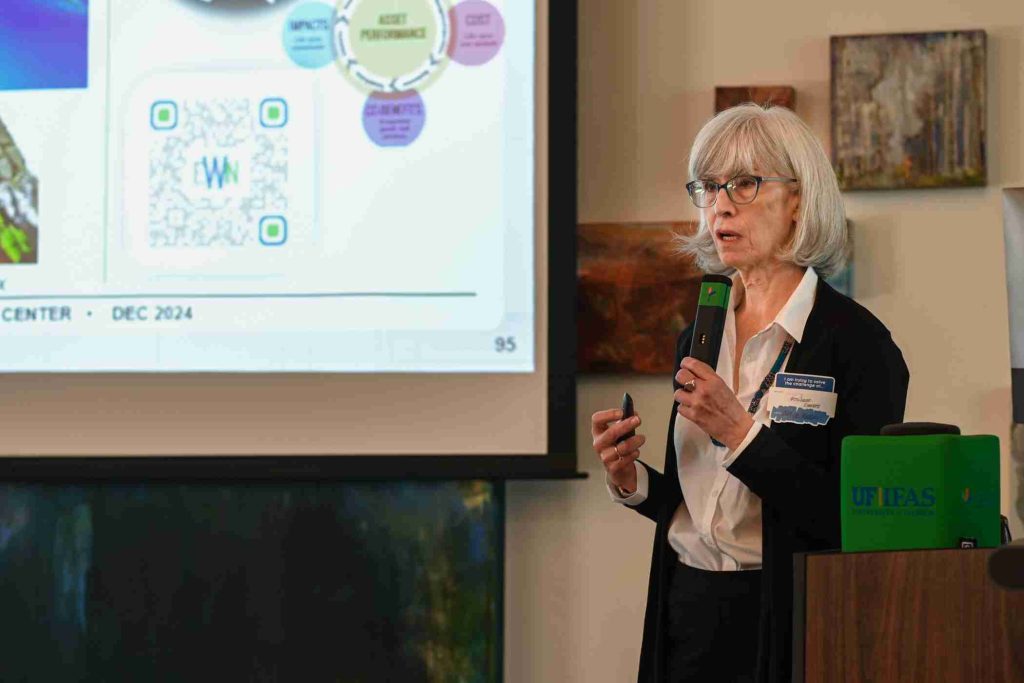
“I think the Center for Coastal Solutions is at the forefront of addressing resilience challenges in the state. We have a lot of work to do, and we need the best and the brightest to tackle it.”
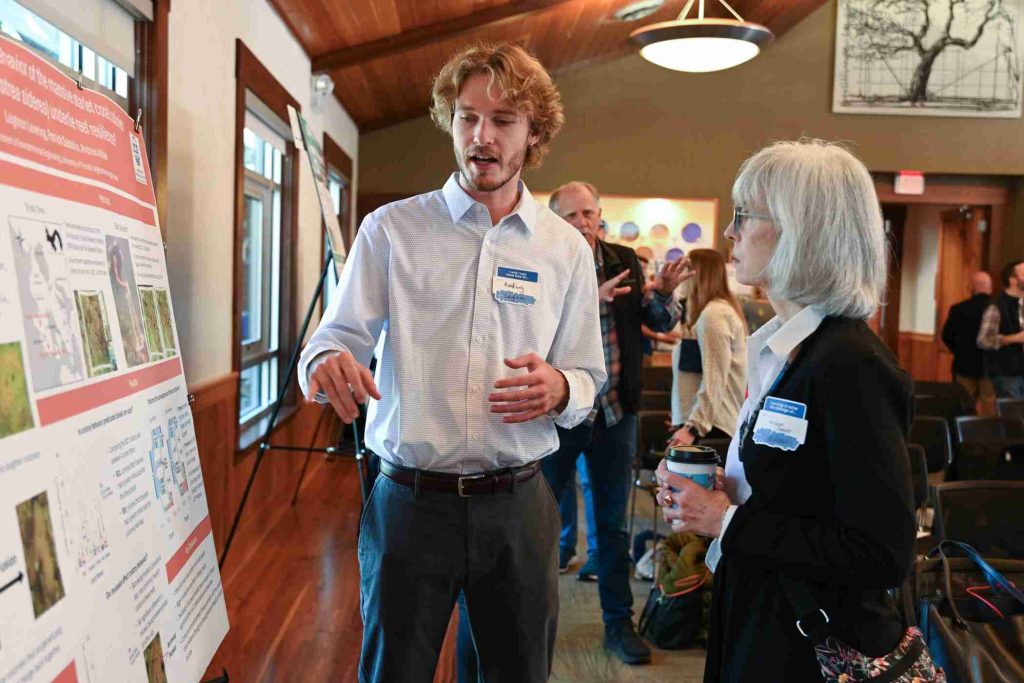

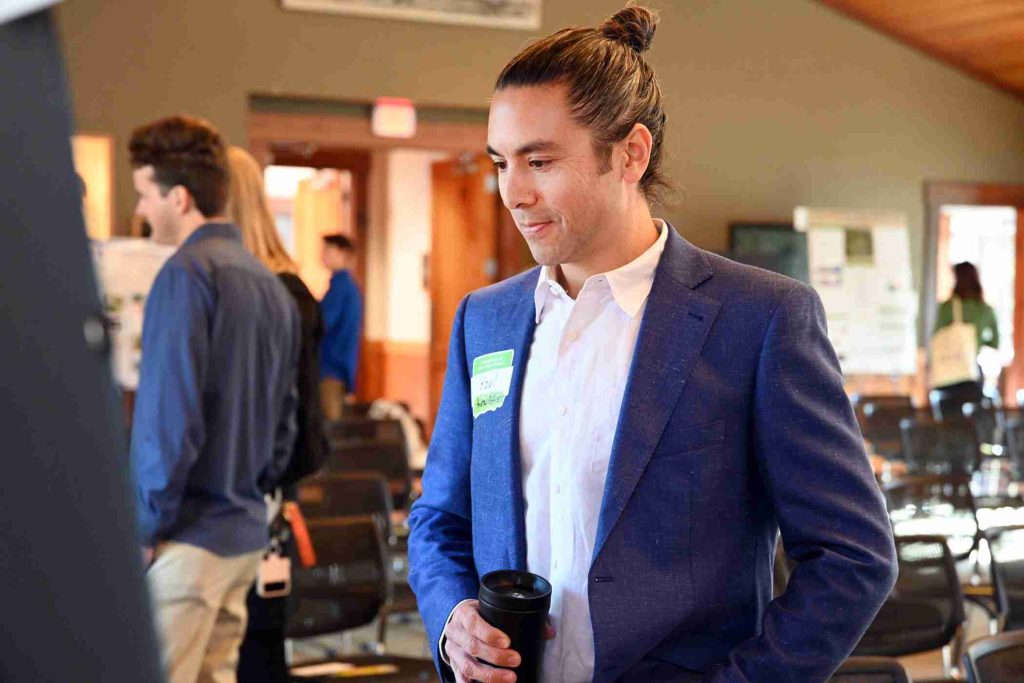
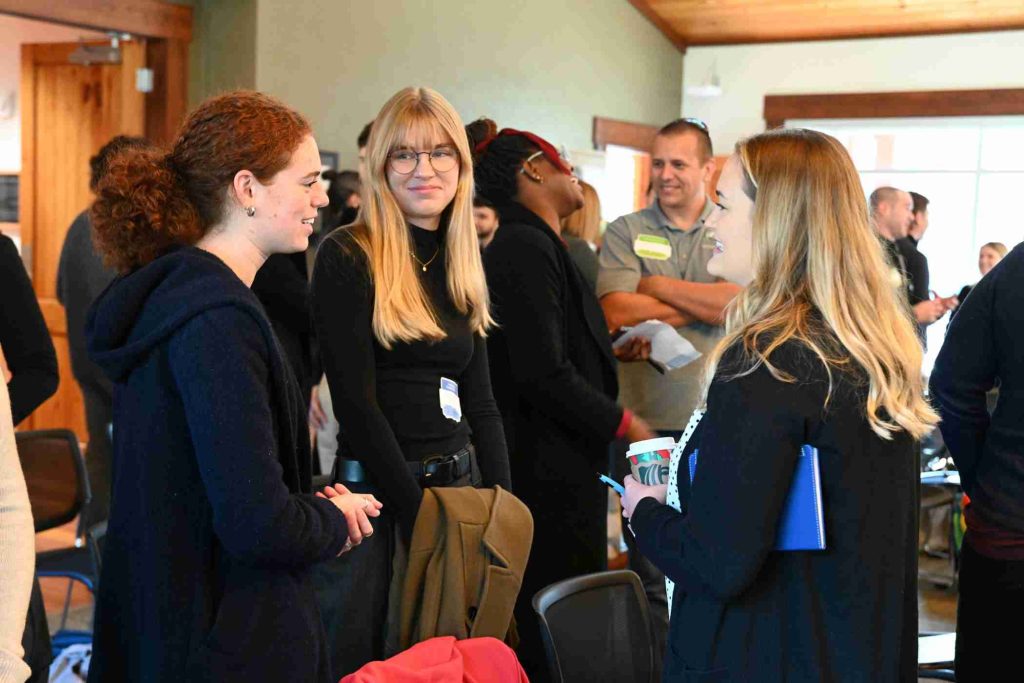
A poster session features work of 14 students and postdoctoral researchers, covering topics such as modeling cholera risk in Haiti after a hurricane and managing wetlands through water level control to reduce mosquito breeding and enhance water quality. (Photo credit: Dave Schlenker)
Industry leaders are also driving progress in addressing the complex challenges facing coastal infrastructure and resiliency. Key innovators like Laura Cherney, a senior ecologist and project manager at AECOM, are making an impact. Laura and her team are pioneering innovative approaches to help Florida’s reefs withstand rising ocean temperatures by breeding heat-resistant corals, using probiotics to boost coral health, and conditioning them for survival in warmer waters. This work underscores the critical role that adaptation and resilience play in ensuring the long-term sustainability of our ecosystems.
In the business services sector, novel technologies and strategic approaches are being used to improve the funding, execution and long-term management of water infrastructure projects. By leveraging cutting-edge solutions, Chris Carillo, a manager in Deloitte’s Infrastructure and Financial Advisory practice, and his team are helping to bridge the gap between planning and implementation, leading to more effective and efficient water management systems.
Another notable example of innovative research is the development of a new class of hurricane monitoring stations at the University of Florida (UF), known as Sentinels. These towering stations, standing at 33 feet tall, provide real-time data to emergency responders, refine wind models, and deepen insights into wind-water interactions, according to Brian Phillips, Ph.D., an associate professor in the UF Department of Civil and Coastal Engineering. By harnessing the power of data-driven insights, researchers and policymakers can make more informed decisions, ultimately saving lives and reducing the economic impacts of natural disasters.
The creation of a digital twin of Jacksonville city was one of the standout achievements for the CCS and project partners in 2024, as shared by Founding Director Christine Angelini, Ph.D. This leading-edge tool can simulate flooding impacts and predict health outcomes with precision, providing a critical framework for data-driven decision making. Angelini also highlighted CCS’ advancements in water quality research, including key recommendations developed for Lake Okeechobee’s water quality improvements based on advanced modeling, as well as improvements in real-time hurricane forecasting. CCS Interim Director Andrew Altieri, Ph.D., outlined significant strides by CCS researchers in nature-based solutions, such as recommendations for the use of sustainable materials in living shoreline projects, and the application of fundamental science to improve the design of coastal restoration strategies. Looking ahead, Altieri and Angelini previewed some exciting new initiatives that CCS will be rolling out in the coming year, underscoring the Center’s unique capabilities for driving innovation and progress in coastal resiliency.
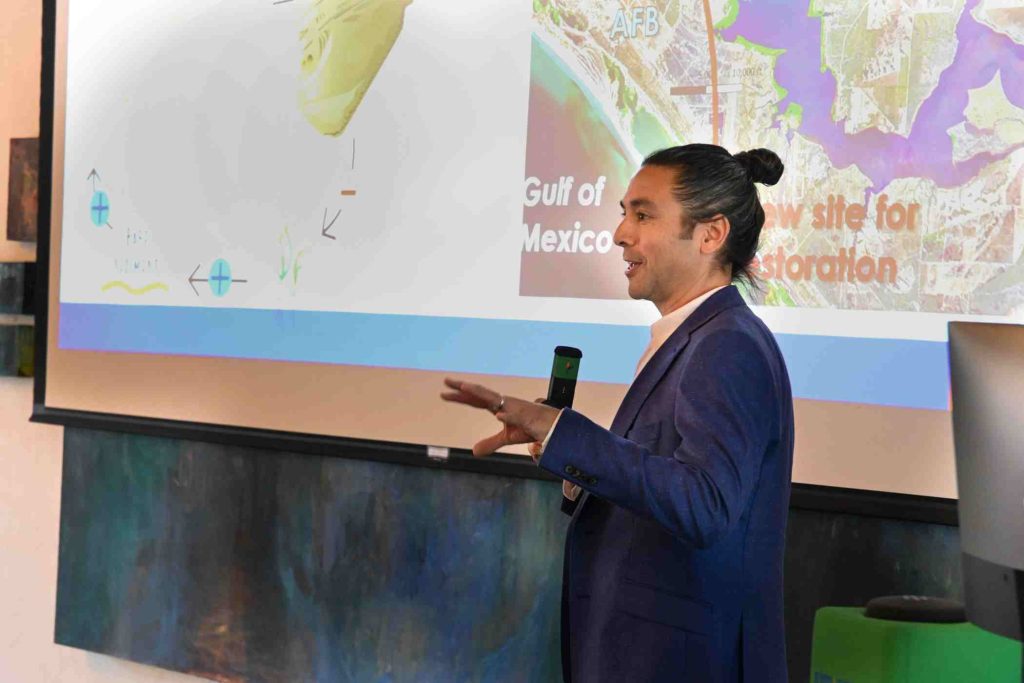
“Thanks to our central location, we can be anywhere in the state within a day,” said Altieri. “That gives us great reach for conducting the science and implementing the solutions that we’ve been talking about today.”
The summit’s conclusion highlighted the importance of putting scientific progress into practice. The innovations presented showed the power of research in improving quality of life and securing a more resilient coast. But, as Christine Angelini noted, “We collectively have work to do in translating research into real-world action that effects change. This summit is about exploring solutions, staying motivated, and continuing the ecosystem of innovation. It’s about hope and optimism.”
—
By Megan Sam
